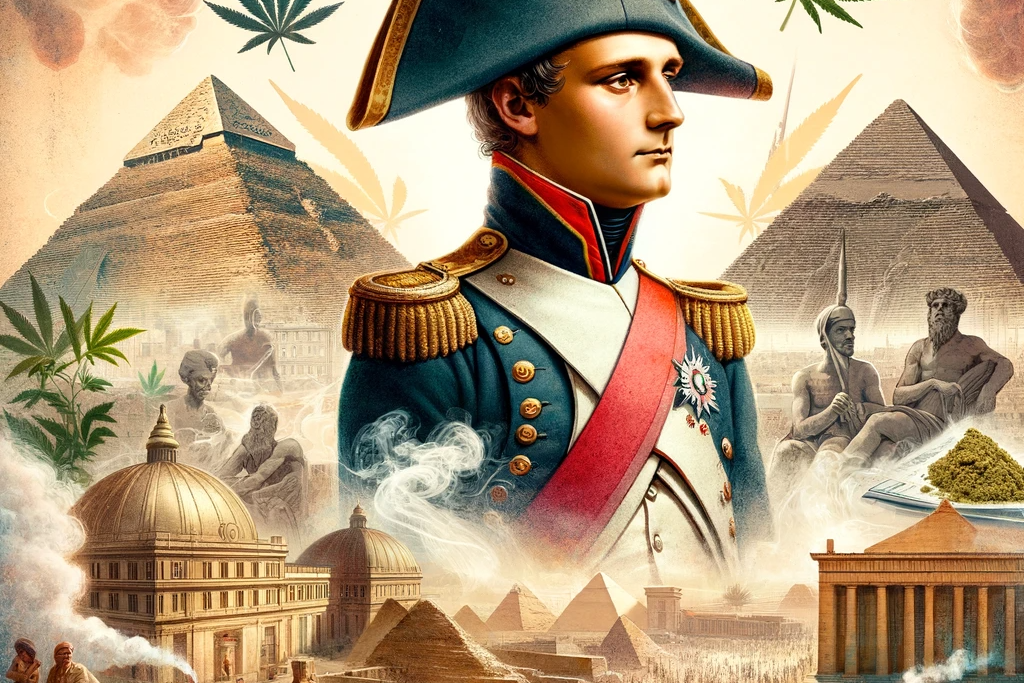Tim Brinkhof‘s intriguing article in High Times Magazine sets the stage for a deeper understanding of the historical interplay between Napoleon Bonaparte’s military campaigns and the evolution of cannabis policy in Western Europe.
His critique of Ridley Scott’s film “Napoleon,” especially the dramatized depiction of Napoleon’s attack on the Egyptian pyramids, opens up a discussion about the real-life implications of the French Emperor’s 1778-1779 Egyptian campaign, as detailed in Robert C. Clarke and Mark D. Merlin’s “Cannabis: Evolution and Ethnobotany.”
From Battlefields To Cultural Shifts: Tracing Cannabis’s Path In Napoleon’s Wake
Brinkhof’s article examines Napoleon’s campaign as a pivotal cultural exchange that influenced Western Europe’s cannabis policies. Highlighting the adoption of hashish by French soldiers, Brinkhof sheds light on how military campaigns can significantly impact cultural practices and drug policies, a narrative often overlooked in mainstream history.
In this context, Clarke and Merlin’s work offers a comprehensive look at the historical journey of cannabis, connecting Napoleon’s Egyptian campaign to the broader trends in hashish consumption and trade.
Their exploration provides a historical backdrop to Brinkhof’s discussion, adding depth to our understanding of how a military campaign can inadvertently shape global drug policy and cultural practices.
Napoleon’s Egyptian Campaign: A Catalyst For Global Cannabis Dynamics
Clarke and Merlin, citing Kimmens (1977), note that Napoleon’s forces observed the widespread use of hashish among Egypt’s lower classes. This observation led to Napoleon imposing a strict ban on the substance, a move later mirrored in France.
French soldiers, much like their American counterparts returning from Vietnam centuries later, brought hashish consumption back to their homeland, introducing a practice previously unknown.
The impact of Napoleon’s campaign extended beyond France. Cairo and Istanbul emerged as major hashish trading centers, becoming pivotal in its global spread.
By 1879, Egyptian authorities, as documented by Khalifa (1975), began enforcing laws to severely penalize cannabis cultivation, production, sale and consumption.
Despite these restrictions, the practice thrived and spread westward, reaching Morocco in North Africa, where it gained extensive popularity.
Photo: AI-Generated Image.
Image and article originally from www.benzinga.com. Read the original article here.

